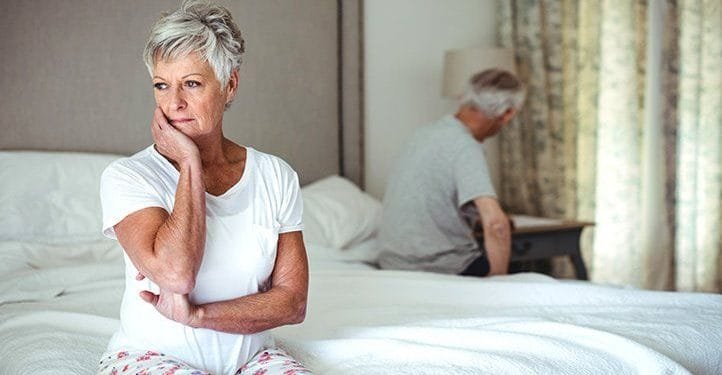Urinary incontinence is a condition occurring primarily among the aged, which refers to the involuntary leakage of urine. Since it is common among older people, it is estimated to have affected about 11 to 21% of the elderly dwelling in a community. In comparison, 77% of residents living in nursing homes suffer from incontinence, and this prevalence is higher among those with dementia.
Not every incontinence results in wetting yourself, and you may feel the urgent need to use the toilet or lose urine while doing some activity. This condition can be life-altering and inconvenient, leading to early retirement, depression, or loss of the ability to function independently.
While reading this article, you must look for ways to eliminate this condition. In addition, it could be helpful for one of your loved ones undergoing the difficulties of urinary incontinence. So, keep reading to find some great tips to overcome this condition.
Wearing Adult Diapers
For those elderly, who may be suffering from urinary incontinence issues, adult pullup briefs or absorbent pants can act as a savior. Adult incontinence briefs are primarily suitable for older people with incontinence concerns. Nevertheless, there is no such age limitation; hence, anyone can wear it to overcome various medical conditions leading to urinary incontinence.
These products can provide much-needed physical and mental relief by efficiently absorbing the urine’s wetness and moisture. They come in spongy, highly absorbent material that soaks up the urinary discharge while being soft and gentle on your skin.
No need to worry about embarrassing situations like wetting your pants in front of people, which may leave a person feeling quite uncomfortable. You do not even have to stress about using the restroom often.
Modern incontinence pads are discreet, do not show through your clothing, are slim, and are pleasant to wear. You no longer must exhaust yourself by rushing to the restroom every two minutes.
Bladder Control Training
Your medical practitioner may advise your aging parents or grandparents to regain control of their bladder through various forms of training. Bladder training can alter how one’s bladder stores or empties urine. The best ways to do this include the following:
Pelvic Muscle Exercises: Kegels
This exercise enables you to work on the muscles that help stop urinating. These muscles work better with the help of pelvic exercises, which strengthen the muscles, allowing you to hold the urine in the bladder for longer. These simple workouts can also reduce or eliminate stress and urge incontinence. Doctors frequently advise parents to contract these muscles a predetermined number of times, hold them, and release them. Repeat this several times after that. Most likely, your parents will repeat this multiple times each day. The doctor will also provide the exact instructions to perform this exercise.

Biofeedback
Seniors can benefit from biofeedback by becoming more conscious of their body’s signals. So, the bladder and urethra muscles may be easier to control. In addition, it is possible to teach pelvic muscle exercises using biofeedback.
Timed Voiding
This technique may be helpful for any elderly individual who is unable to control their bladder. They can chart the pattern of their urination and leaking, and this pattern can aid in determining the right time to use the toilet before they start leaking. When you combine this strategy with pelvic muscle exercises and biofeedback, it can prove to help control the urge to urinate often or overflowing incontinence.
Lifestyle Changes
Bringing specific healthy changes into your lifestyle can help eliminate incontinence issues.
Fluid and Diet Management
Urinary incontinence cannot be cured by food alone, although it can help with bladder control. Alcohol and fizzy drinks are two examples of drinks that might stress your bladder, and even sipping tea or coffee while taking prescription medicine might worsen it. The following substances should also be avoided: milk, tea, honey, soda, and spicy meals.
Losing Weight
Stress incontinence can also result from being overweight since it puts more pressure on your bladder. Urine leaks result from actions that pressure the bladder, such as laughing, sneezing, or lifting, known as stress incontinence.
While consuming wholesome meals can aid in weight loss, regular exercise, such as strength training, can help in long-term control.
Medical Procedures for Incontinence
When lifestyle adjustments are not enough, turn to your doctor for additional suggestions.
Medication
To cure incontinence, a physician may prescribe medication. Some medications stop unwelcome bladder contractions, and some cause muscles to relax, allowing the bladder to urinate more thoroughly. Others reduce leakage by tightening the muscles in the bladder and urethra. However, the adverse effects of these medications can include dry mouth, vision issues, and urine build-up.
Implant
A doctor can inject an implant into the region around the urethra. An implant increases bulk, and this aids in urethral closure and lessens stress incontinence. After a while, injections might need to be repeated since your body gradually eliminates these compounds.
Surgery
When incontinence arises through a condition like a shift in the bladder’s position or a blockage brought on by an enlarged prostate, surgery may help to treat it. In stress incontinence surgery, drawing up and securing the bladder is common practice. A broad sling used by the surgeon in severe stress incontinence can help. To stop leaks, this supports the bladder and constricts the urethra.
Final Thoughts
Incontinence therapy is based on various underlying conditions, which the doctor will identify through questioning, a physical exam, and maybe some preliminary testing. But rest assured, the method mentioned above can be equally effective when done under the supervision of a medical professional.





















































